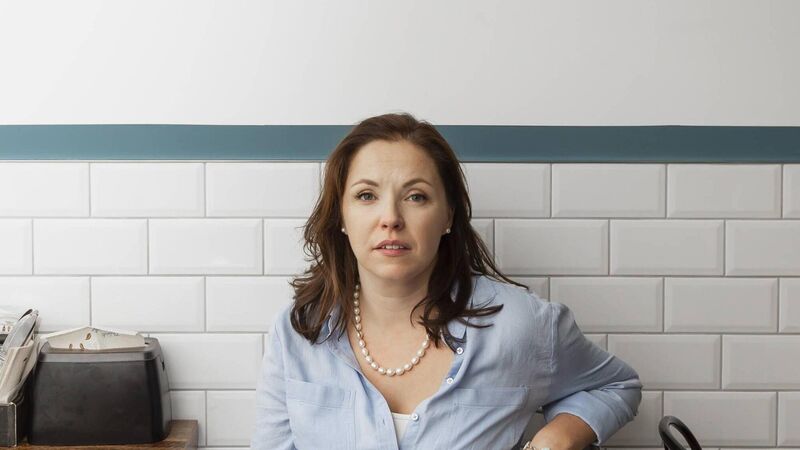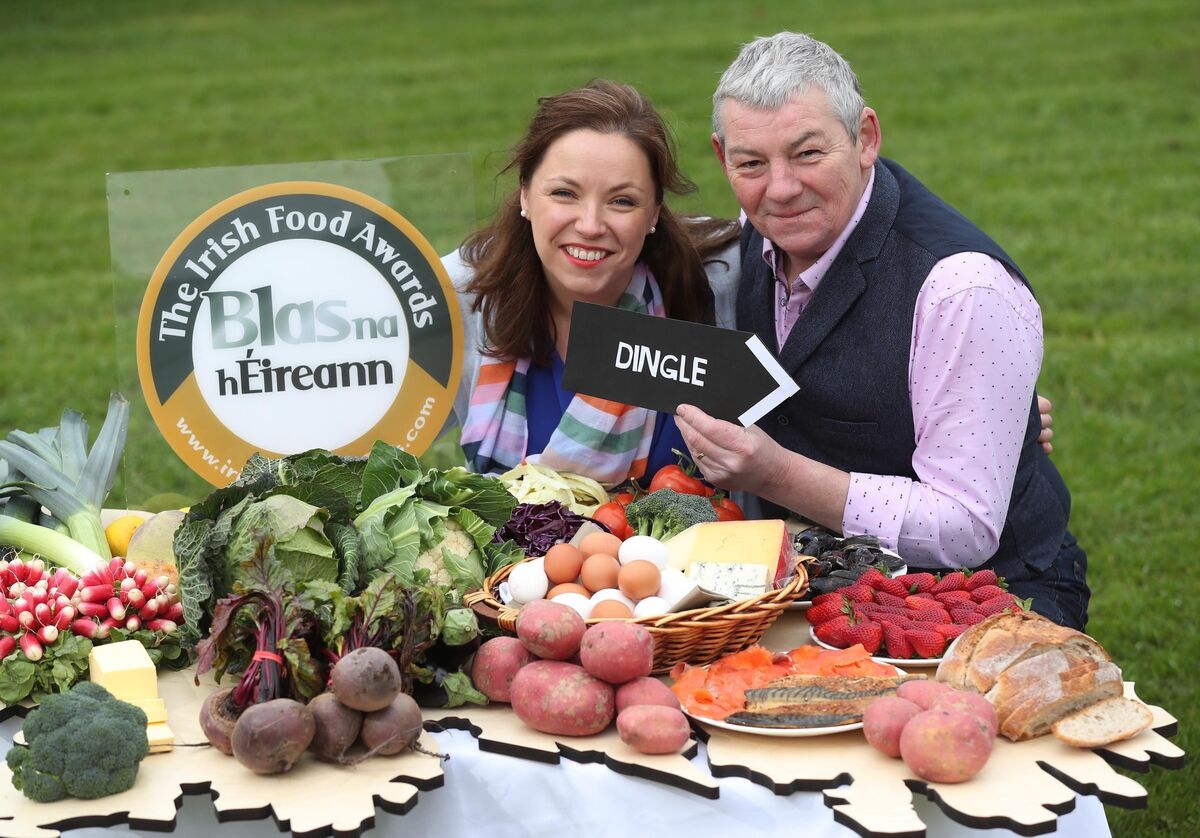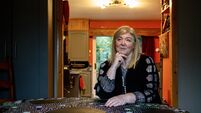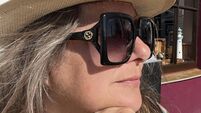WoW Bites: ‘It’s those little doors that open all along the way'

Fallon says winning a Blas award can have an impact on sales of as much as 20%. Picture: Lynda Kenny
There has been a quiet influence at play in Ireland’s celebrated artisan food scene for nearly two decades.
Blas na hÉireann Irish Food Awards was the first of its kind to recognise, champion, and award the endeavours of Ireland’s small producers.
Established by Artie Clifford in 2007 as a day of tasting, judging and awarding during the Dingle Food Festival, the event has morphed into a year-round programme of events, supports, showcases, taste judging and awards since his daughter, Fallon Moore, joined him at the helm.
Although the headquarters of Blas na hÉireann is An Daingean, there are deep-rooted connections with their neighbouring county of Cork through important partnerships with UCC and Cork Penny Dinners.
Over the years, Cork’s army of small artisan and specialty food producers have enjoyed much success at ‘Blas’ (its affectionate nickname) going on to grow their business and expand into markets outside of Ireland too.
Blas is a network of food producers, retailers, chefs, industry experts, food champions and media, all working together to raise up and celebrate the achievements of those operating in Ireland’s largest indigenous economic sector – food.
I caught up with Fallon Moore to find out why the work of Blas is important for the all-island community of food producers.
Fallon’s career in food started early, working in the family guesthouse from the age of 14 and later in restaurants. With an interest in the space where food and events met, she gained a degree in Business with Arts Management, then went on to a career in hotel sales and marketing.
But Blas, says Fallon, was something her dad, Artie, snuck up on her.
“In the early years, dad would say, when you’re at home and around that weekend of Dingle Food Festival, you might give me a hand with a new project. It was just helping out but, like anything in a family, it grew! He’d talk about ideas for Blas, and I’d get involved with projects that were going on. For a long time that was all on a voluntary basis while I was working with hotels.”
Eventually, Fallon left hotels behind and joined Artie full-time in the food awards, bringing the years of experience in event management and hospitality with her.
Artie had been working as a fisherman, later setting up a company making seafood products. A shelf-life issue with a chowder led to a connection with UCC and Dr Joe Kerry, a lecturer in UCC’s School of Food Science and Nutrition who specialised in food packaging, product stability, shelf-life, and smart technologies for food quality.
Later, Dr Kerry was instrumental in designing the sensory evaluation protocol used by every Blas na hÉireann judge, and is now the awards’ Academic Director.
“Dad had completed the Diploma in Speciality and Artisan Food Enterprises at the Food Industry Training Unit (FITU) in UCC, so he had the understanding of food science, and I had the hospitality and events side.

“Dad developed that relationship with UCC which then developed into a friendship between dad and Joe. When he wanted to look at an award for Irish food, he went to Joe and the team and said he wanted to establish a food award in Ireland, but how could it be rooted in science; something concrete and reliable?”
The development of the unique sensory analysis protocol is just one aspect of how Blas and UCC have continued to work together over the years.
Raising awareness of and providing access to ongoing education, training, mentoring and other supports for producers in the Blas network has proven to be essential in supporting innovation.
“Producers approach us looking for advice, like a packaging issue, and because we work closely with FITU, producers have found them [courses and educational resources] incredibly useful and have changed how they look at their business. We also have speakers from UCC and FITU engaging with us at the Blas Backyard, [a space for discussion and sharing ideas] during the Blas weekend in October.”
That weekend leads into and then coincides with Dingle Food Festival, in which food producers, vendors, chefs, food writers and foodies land into West Kerry for a slice of food heaven.
The weekend includes a Producers’ Showcase to highlight all the Blas finalists, providing opportunities to network in an informal environment with buyers from independent shops, big retailers and the hospitality sector looking to buy the latest and best of Irish food.
Winning a Blas na hÉireann award (gold, silver or bronze) can have an impact on sales by as much as 20%.
“Producers work differently, and it took me a couple of years to understand they weren’t doing this kind of networking and negotiation every day. They are in production or delivering; they’ve got their head down in the business. I had to rethink how we looked at our events to make things more informal and suitable. That’s the impact of Blas. We learned in the early years that it’s a place where people make connections; importantly, with each other as well as buyers, press, anyone in the industry that can help them. But predominantly it’s their colleagues in their own industry they need to connect with.
“People travel to Dingle and have committed to be there for several days. It has grown very organically for that community of producers and is true to say that some feel they are able to pick up the phone to another producer and are collaborating with each other.”
This kind of cross-collaboration, support and friendship is not something one would expect to come out of what is essentially a competition.
“In the very first few years of Blas, we set out some principles we would always come back to for everything we do,” Fallon says. “One of those principles was to build a network for Irish food producers because we could see that was where the value was going to be for people.
“To have the award is great; to have the piece of glass everyone can look at or to have the badge on their product we know makes a difference to people; we know that’ll make a difference to sales. But that network, the community and the friendships that come out of Blas, that’s a huge value.
“As soon as we understood that, we chose to focus on it. Behind the scenes, there’s a lot of connecting people. For a lot of producers, it can feel lonely because they’re working on their own or in a small group, and they need community to understand that other producers are facing similar challenges.”
Around the time Blas na hÉireann was established, Ireland was going through its catastrophic economic crash.
Many people, women particularly, who were made redundant took to their kitchens and began making food to sell - cheesecakes, chutney, preserves, jams, cakes, breads, chocolates, etc, as a way of regaining some sense of agency and purpose.
Some have gone on to become household and international names with success in business based on the principles of Blas – community, network, and the power of small artisan food businesses.
But how has Blas made a concrete difference to women in the food space?
“Because the judging is entirely blind, it’s a level playing field. A producer who was making something great in their kitchen but without all the marketing expertise, packaging, etc, Blas gave them a chance to be judged purely on the merit of the product,” explains Fallon.
“The opportunities we try to open with our events, the exposure we try to give finalists and winners, that’s where we’ve seen some interesting stories develop. One is Miena’s Nougat.
“Miena Rust was exactly in that situation. She started her business coming out of the crash making nougat because that’s what she knew from her childhood.
“As the business grew, she started to employ other women who live locally to her and who were in similar situations to her with young children. They worked around the school times and, as time went on, they shared childcare between them, which was amazing.
“Miena’s Nougat was seen and tasted at Blas by one of the buyers from Simply Better in Dunnes Stores. It went on to be listed and Miena is now their national supplier. The following year, the buyer for Harrods (who, at the time, was Annie Dunne of The Art of Grate Food) called Miena as she was driving home, said she had tasted the nougat, and was working for Harrods and they’d love if she could talk to them. Miena now makes the nougat for Harrods!”
A prestige name like that has made an enormous impact – not just in sales, but, says Fallon, to go on and export to France and the U.S, based on her relationship as a producer for a name like Harrods.
“It’s those little doors that open all along the way and for the producer to be ready to step through it, answer the call and say, ‘Yes, I’ll do it!’”
For the month of July, Blas na hÉireann base themselves at UCC where the lion’s share of blind tasting takes place. Judges come from all aspects of the food industry, tasting thousands of products in more than 150 food and drink categories.
In recent years, Blas has struck up a mutually beneficial relationship with Cork Penny Dinners who serve hot meals for free every day to anyone who needs it.
“We would have struggled in the past with charities taking food because packaging will have been opened, or a leg of lamb would have slices cut off it for tasting but most leftover. Someone suggested Cork Penny Dinners.
“We approached Caitríona Twomey and she has been an absolute joy to work with. We can explain to her exactly what we’ve got coming up – one week we might have lots of joints of meat, or it could be a week you have lots of dairy.
“We are so proud to work with Cork Penny Dinners and donate all the surplus food, especially as demand for their service has only increased in recent years.”
With such a broad experience in different aspects of the food industry, what wise words does Fallon have to inspire other women looking to develop a career in food?
“Women are very good at talking, asking for help, and being open to ideas. I think women are naturally collaborative, we work well as a group. It’s being able to ask for help and to freely give it.”







 App?
App?


